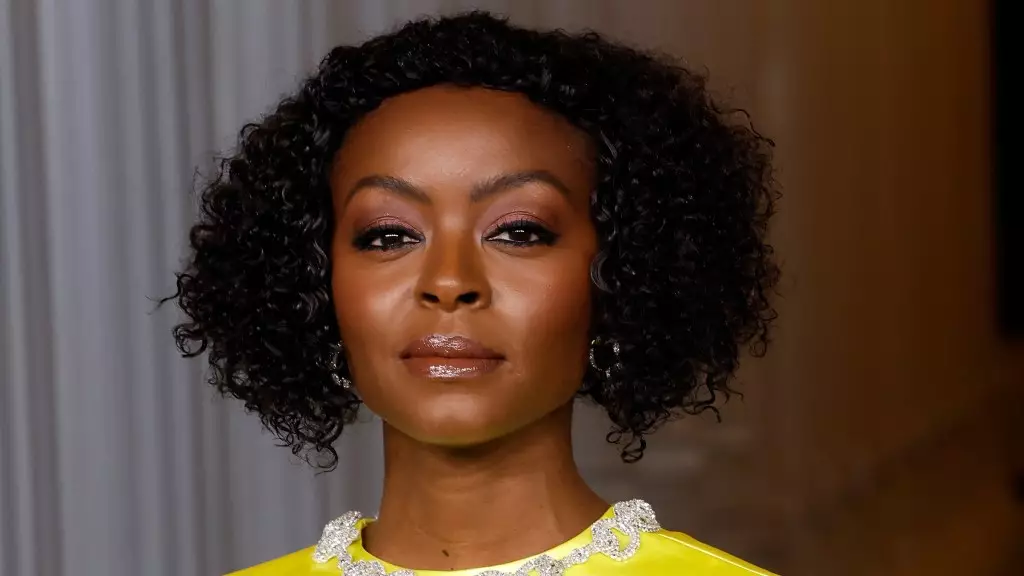Danielle Deadwyler’s latest insights on the landscape of award season illuminate a refreshing perspective that transcends the traditional obsession with accolades. Having experienced a notable absence from last year’s Academy Awards despite her work in the film “Till,” Deadwyler has cultivated a more laid-back approach to the industry, particularly with her involvement in the upcoming film “The Piano Lesson.” This film adaptation of August Wilson’s esteemed play has reignited the conversation about recognition, artistry, and the communal aspects of creative projects. Deadwyler’s statement that she feels “relaxed” about being included in Oscar discussions signifies a profound shift in her outlook, highlighting an awareness of the need for dialogue focused on community rather than mere individual achievements.
Deadwyler emphasizes the importance of community in the artistic process, stating, “I’ve always known what has always been most valuable, which is people.” This assertion encourages a critical re-evaluation of the current award-centric narrative in Hollywood, especially during a season where actors and filmmakers are often overwhelmed by the pressure to be recognized. Her assertion that celebrating the ensemble experience and the joy derived from collaboration is paramount, suggests a movement towards a more inclusive and holistic understanding of artistic achievement. The fixation on awards can warp perceptions of worth, leading participants in the industry to measure their value against the often arbitrary standards set by award bodies.
The conversation surrounding the representation of Black women in film has been particularly pertinent in recent years. The actress spoke candidly about the 2022 controversy that saw numerous Black women creators overlooked for major nominations, creating a systemic dialogue about inclusivity and recognition. This is especially relevant in an industry where Black female narratives are often sidelined. Deadwyler’s call for introspection regarding the space afforded to Black creatives serves not only as a critique of existing structures but also as an invitation for change. She poignantly notes the need to question the dynamics of recognition and whether established systems genuinely promote equity.
Deadwyler’s assertion that “controversy always surrounds Blackness” highlights the complexities of racial dynamics in the entertainment sector. The actress points to an inherent bias that shapes the narrative landscape, suggesting that discussions around recognition are often marred by misconceptions about Black presence, both in front of and behind the camera. This systemic issue calls for a broader dialogue about how culture and race interact within the industry—a conversation that should extend beyond mere recognition to include the importance of representation and its implications for audiences.
As “The Piano Lesson” prepares for its Netflix debut on November 22, the film’s narrative transcends the personal stories of its characters to touch on larger themes of heritage, family, and legacy. Directed by Malcolm Washington, the film follows the fraught relationship between siblings Boy Willie and Berniece, who are at odds over the fate of a pivotal family heirloom: an intricate piano. This story is not just a familial conflict but a reflection of the broader discourse about the value of cultural heritage in understanding one’s identity. It symbolizes the rich tapestry of Black history and the struggles that accompany the desire to preserve one’s legacy amidst external pressures.
Danielle Deadwyler’s articulate stance on the award season discourse opens the door for a re-evaluation of what recognition truly means in the film industry. By prioritizing community and cultural heritage over individual accolades, we can begin to forge new paths towards equity and acceptance. As she navigates her role in “The Piano Lesson,” her insights invite actors, directors, and audiences alike to reconsider the terms of engagement with film, focusing on the broader cultural narratives rather than the transient nature of awards. In doing so, Deadwyler not only redefines the conversation around recognition but also champions a more inclusive future for storytelling in cinema.


Leave a Reply